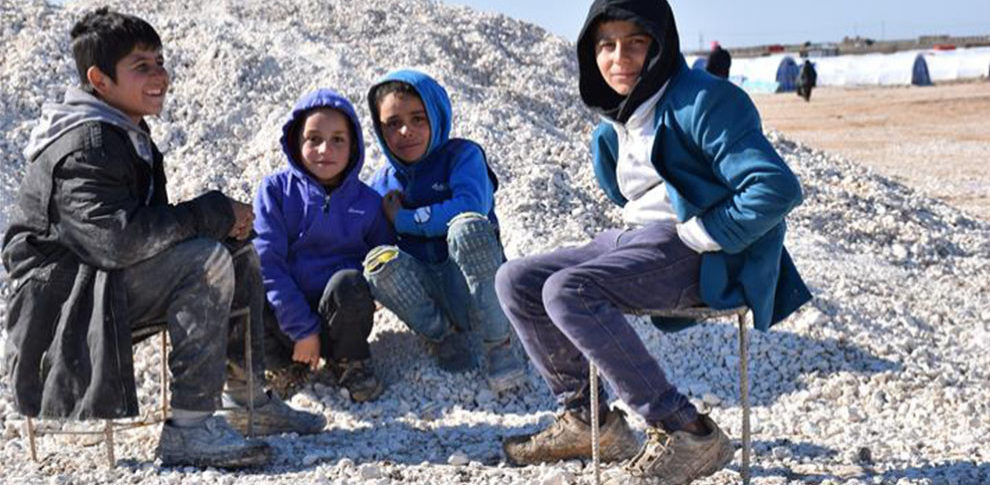Almost 7,000 people now live in the Washokani camp, which was built for displaced persons from the Turkish occupation zone. For most of them the difficult conditions are the same. “In any case it is better than a life under occupation”, they say.
More than 300,000 people have been forced to flee as a result of the Turkish invasion of the self-governing areas of northern Syria, which began on 9 October. The cities of Serêkaniyê (Ras al-Ain) and Girê Spî (Tal Abyad) were occupied by the Turkish state. The autonomous administration of North and East Syria initially placed the people displaced from the occupation zone in public schools. In the town of Tiwêna, which lies about twelve kilometres west of the cantonal capital Hesekê, the Autonomous Administration and the Kurdish Red Crescent (Heyva Sor a Kurd) set up the Washokani tent city without any support from international aid organisations. There are now almost 7,000 displaced persons living there, who are trying to maintain Rojava’s democratic system as best they can.

Almost daily more people arrive at the camp, whose complete care is also provided by the self-governing structures and Heyva Sor a Kurd. Although international organisations have been called upon several times to support the refugees, so far in vain. Despite the difficult conditions in Washokani, the inhabitants are relieved to be outside the occupation zone. Many declare to prefer living in a tent to the Turkish occupation. In the cities of Rojava annexed by Turkey, there are indiscriminate attacks on the civilian population, cold-blooded killings and kidnappings, as well as looting by the Turkish army and its jihadist auxiliary troops. The international community continues to maintain its silence and to ignore Turkey’s war crimes in northern Syria.

“Our conditions here are of course better than in the regions affected by militia attacks. The camp administration meets our needs as much as they can. The winter weather conditions make life difficult, but it is better than living under Turkish occupation,” says Ahmed Mihemed from the village Deşişa in Til Temir. He wants Turkey to leave Syria.
Similar words come from Ayşe Mihemed. She fled from Serêkaniyê, the city where the Turkish invasion began. She declares: “I prefer to live under the conditions in Washokani than under the control of the jihadists.”


